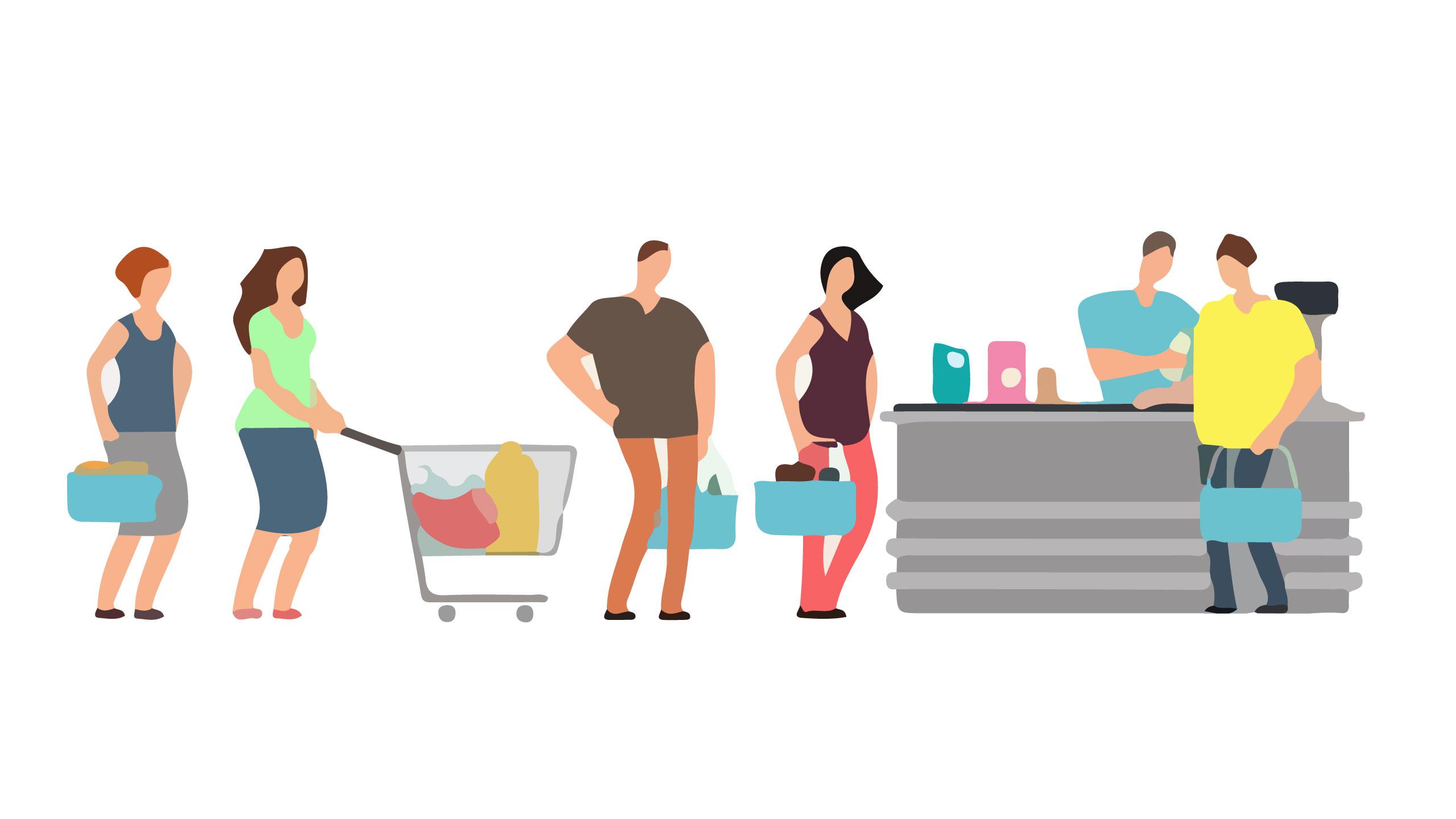By: Sarah Tomlinson
Ryerson students working in essential services say the way customers have treated them as a result of COVID-19 has added extra stress to their jobs.
Tiesa Gutauskas, a fourth-year creative industries student, has been working at Sobeys for almost six years. Since COVID-19 was declared a pandemic, she said customers have been pressuring cashiers to sanitize themselves and their workplace to an extreme level.
“There are other customers that are like, ‘Shouldn’t you be wearing gloves?’ ‘When was the last time you washed your hands?’ ‘When was the last time you cleaned your belt?’” she said.
Frontline workers have had to encounter extra obstacles as a result of the pandemic—and many of them are working in jobs that pay minimum wage. It is only in light of COVID-19 that precarious workers such as those working in grocery stores have begun to receive recognition.
CBC reported that grocery store workers in particular have received praise for their increase in work hours and labour at work.
Chains such as Sobeys and Loblaws have launched initiatives to help their employees like the Hero Pay Program. It provides employees with an additional $50 a week, regardless of the number of hours worked, and staff who work more than 20 hours a week will receive an additional $2 premium per hour.
Some cashiers at Sobeys are being brought into work just to clean, and some are only there to relieve other cashiers every 15 minutes so the working cashier can wash their hands, Gutauskas said. Sobeys has also started adding plexiglass in front of cash registers, she said.
While working, Gutauskas has also witnessed customers getting mad at each other, which has added extra stress to herself and her co-workers. She said a cashier even had a customer screaming, “Everyone’s standing too close to me!” at them and the customers.
“It isn’t our job to make sure people aren’t getting too close to you. Our job is to cash you out as safely as we can. What other customers are doing—we can’t control that,” she said.
Additionally, Gutauskas said her work has been busier than she’s ever seen it. Aside from Thanksgiving and Christmas, there has never been as high of a volume of people shopping, she said. “Dealing with that has been insane.”
Dr. Leon Rivlin from the Humber River Hospital advised families to only send their healthiest member to go shopping, CTV News reported.
Gutauskas agreed and said “It’ll make it look less busy if only one person comes.”
Like Gutauskas, Sherri Welsh, a supervisor at Food Basics, said some staff have been obliged to work during lunches and during breaks.
“A lot of people are calling in because they don’t want to work. So the rest of us that are still there are way overworked. It’s a really hard job with a lot less people,” she said.
Gutauskas said to compensate for the volume of people, managers have encouraged their employees who want to work to work as many hours as they like.
“I think everyone’s just exhausted. Managers work 12 hours, sometimes 16, just to support their team and make sure everything’s okay. They don’t get any kind of bonus for that. I think there’s gonna be a lot of burnout,” she said.
Another issue raised has been people over-purchasing, which has left shelves of grocery stores empty. “People come in and spend $600-$700 at a time on just canned goods or paper towels,” Welsh said.
There are security guards to enforce limits on purchases of items, Welsh added. “People think they need to buy everything to provide them for a year. We don’t have baby wipes. We don’t have any pasta. Everything is on backorder now,” she said.
Additionally, some customers have still been paying in coins, which Welsh said they’ve been advised not to do.
“We’re asking people to [use] debit or credit so that it limits our handling of money. But unfortunately, a lot of people are just non-compliant. It’s just a lot of risk. It’s a lot of putting ourselves out there,” she said.
Nevertheless, Gutauskas said most people are very appreciative of cashiers. “I’ve never had some people thank me for showing up to work and people never say thank you for being here. Now, the first thing they say is thank you for coming to work today,” she said.
In addition to grocery workers, those working in the health sector have had to deal with hardships as frontline workers. Nurses, for example, have had to deal with upset clients, said Rachel*, a Toronto nurse who is also a Ryerson nursing graduate.
On March 21, Toronto-area hospitals implemented no-visitor policies, Global News reported.
“We have a lot of upset loved ones who feel that it’s not fair that they can’t see the patients but at the end of the day, we have to put our foot down because we’re just trying to do what’s best for everyone and prevent the virus from progressing,” she said.
Because of this, she said family relatives and friends started calling hospitals frequently—which has often led to time taken away that nurses get to spend with the patients.
As a solution, many patients have taken to Skyping their family members, she said.
“They at least get their family members at ease, knowing that their loved one is okay. And the patient you know, they are not as bored to death, sitting in their room,” she said.
Although she said her hospital has been less busy, she said there is still a lot of fear associated with being a nurse right now.
“The people that have it the worst are definitely in emergency because they come into contact with such a large volume of people and they are the first point of contact,” she said. “That’s probably the scariest bit for everybody, being unsure of where this virus is.”
*Rachel has requested The Eyeopener to not provide her last name for personal reasons.













Leave a Reply